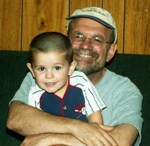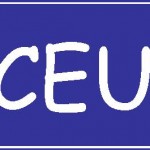
We would love to hear about your tools and tips – please share them with us here.
]]> 
We would love to hear about your tools and tips – please share them with us here.
]]>Comparing Two Motor Assessment Tools to Evaluate Neurobehavioral Intervention Effects in Very Low Birth Weight Infants at 1 Year
We would like to share this research article published in the APTA Physical Therapy Journal
Very low birth weight (VLBW) infants are at increased risk for motor deficits, which may be reduced by early intervention programs. For detection of motor deficits, and to monitor intervention, different assessment tools are available. It is important to choose tools that are sensitive to evaluate the efficacy of intervention on motor outcome.
http://ptjournal.apta.org/content/early/2013/06/12/ptj.20120460.short?rss=1
]]> 
We are excited by the results and are beginning to develop exciting new products to meet your CEU needs.
Congratulations to Tim, Katie, Linda, Justin and Mitzi and Susan- winners of a $75 Amazon gift card
We always welcome your input. Please visit our blog, our Facebook page and Linked In Page, to post your thoughts, comments and any clinical challenges and cases:
]]>
Guest Blogger

A clinically affective strategy for children with Autism who engage in repetitive self-injurious behavior is the FAB Reinforce Sensory Match Strategy. The FAB Reinforce Sensory Match Strategy involves replacing the automatic sensory reinforcement that encourages repetitive self-injurious behaviors with matched sensory activities, while also reinforcing the child for refraining from the self-injurious behavior. The Sensory Profile and a sensory functional behavioral analysis assessment can help direct the intervention. The Sensory Profile alerts the therapist to definite difference in the child’s sensory processing that only occur in 1 out of 100 kids. The Sensory Functional Behavioral Analysis establishes base line data, determines the function served by the problematic behavior, and helps direct intervention. The Reinforce Sensory Match strategy is most effective with children who have significantly different sensory modulation styles and engage in self-injurious behavior only to obtain sensory input.
The therapist hypothesizes the automatic sensory reinforcement the child is getting from the problematic behavior then offers adaptive equipment and sensory techniques that match it. For example, when the Sensory Profile and Sensory Functional Behavioral Analysis show that a child repetitively mouths his hand for sensory reinforcement the therapist analyzes whether the sensory reinforcement is oral input, touch on his fingers, or both. The client is then offered various mouth and hand touch activities, and a super chew toy is found to be his favorite. The child is offered the chewey to use whenever he wants, and is praised for not mouthing his hands for progressively longer periods of time. For particularly problematic behavior the FAB Reinforce Sensory Match Strategy can be one component of a functional behavior plan written jointly by a Certified Behavior Analyst and Licensed Occupational Therapist.
References:
Dunn, W. (2007). Supporting children to participate successfully in everyday life by using sensory processing knowledge. Infants & Young Children, 20(2), 84-101.
Higbee, T.S., Chang, S., Endicott, K. (2005). Noncontingent access to preferred sensory stimuli as a treatment for automatically reinforced stereotypy. Behavioral Interventions, 20, 177-184.
Effectively Treat Behavior in Children with Autism Spectrum and Other Sensory Challenges
Please click here for course description and scheduled dates

“Integrating Movement-Based and Learning Strategies: An Evidence Based Approach to Enhance Engagement and Function in Children”
June Smith
September 20-21, 2013 – Wilkes Barre Township, PA
This dynamic and interactive workshop will teach clinicians a wide range of movement-based strategies to facilitate integrative learning and to promote function, engagement and participation for children at home, in the classroom and in therapy
]]>